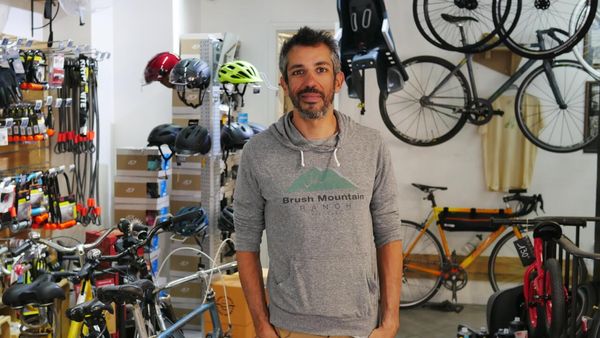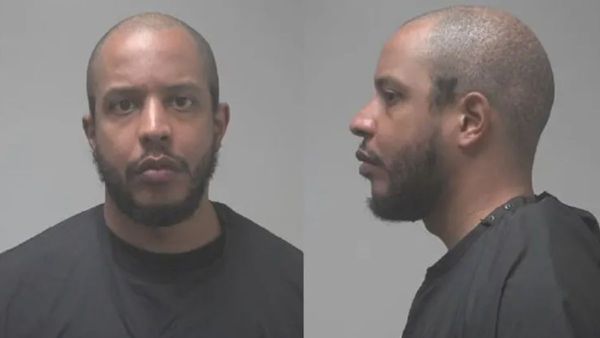Claudia Goldin won the Nobel Prize in Economics in 2023 — only the third woman to win the Nobel Prize in Economics and the very first to win it on her own. And it's no mystery why.
In fact, the Royal Swedish Academy of Sciences illustrated its announcement with a drawing of a detective clad in Sherlock Holmes-like trench coat and deerstalker cap while wielding a magnifying glass. Goldin — as Holmes — was looking for clues by poring through a filing cabinet.
The emphasis on Goldin's penchant for detective work was apt. Her best-known works are based on data discovered through countless hours rummaging through old records — like those filing cabinets — for clues.
The results have been as impressive as Sherlock Holmes' storied solutions. In addition to her Nobel Prize, the now-78-year-old Goldin is a Professor of Economics at Harvard University and former Director of the National Bureau of Economic Research's (NBER) Development of the American Economy program. Her books and papers explore the interplay of job growth, education, motherhood and the contraceptive pill.
Growing ranks of women work outside their homes. But, generally, many continue to be paid less for same work than men. Why does that wage gap persist? Her melding of economics and history is known as "cliometrics."
Two of her better-known books, "Understanding the Gender Gap: An Economic History of American Women" and "Urban Slavery in the American South, 1820 to 1860," dig into such tough topics.
"I always wanted to be a detective," Goldin told Investor's Business Daily. As a youngster growing up in New York City, Goldin loved to visit the famed Museum of Natural History. "I was determined to uncover the secrets of the Egyptian mummies."
Follow Your Changing Passions
In junior high school, Goldin was inspired by Paul de Kruif's "Microbe Hunters," a history book that shows how the invention of the microscope in the 1700s led to the discovery of microorganisms. And that paved the way to development of a vaccine for syphilis in 1909. To many youngsters, the book reads like a detective story. Goldin says that when she read the book, "I decided I wanted to be a microbiologist."
Microbiology was her initial focus when she enrolled at Cornell. But in her sophomore year she took a course taught by economist Alfred Kahn. Kahn championed deregulation to help consumers and businesses save money. "Kahn's thrill in using economics to uncover hidden truths did for economics what de Kruif's book had done for microbiology," Goldin said.
She switched her major to economics. "I gave up my microscope and relocated my detective work to libraries, dusty archives, and, later, large electronic data sets," she said.
Prioritize Education Like Claudia Goldin
After graduating from Cornell, Goldin worked toward her doctorate at the University of Chicago, a leading center of economics teaching in the U.S. The economics department included six Nobel laureates, by Goldin's count, including Milton Friedman, Robert Fogel and George Stigler.
Goldin wrote a term paper about the role of slavery in the urban and industrial development of the pre-Civil War South. Fogel encouraged Goldin to expand that work into her Ph. D. dissertation. She began to think of herself as an economic historian.
Chicago is also where Goldin discovered her love of the outdoors and dogs. Like many New Yorkers, she had not been a car driver, but in Chicago she learned to drive. Friends introduced her to the mountains. Hiking and climbing spots were within a day's drive. Goldin also got her first dog, Kelso, a golden retriever.
"The natural world was something that I didn't know as a child," Goldin said. "Yet somehow I knew it was something that I longed for. My only time in nature had been in the summers when (my family) went to the Catskills (resort region). Other than that, I was a creature of the Bronx, Manhattan and cement. Places that had fences around grass. Sometimes when I look back on it, I think of Walt Whitman and I understand how he found the entire natural world in the smallest blade of grass. As a child, I would dig with a stick at cracks in (sidewalk) cement because ants would crawl out, revealing an entire natural world."
Find Sources Of Support
On her long steeplechase run to the Nobel, one hurdle that Goldin had to clear was the need for support from others in her field, whose interest attests to the importance of your work. "She was one of a handful of female economists at a time when there were very few," said Claudia Olivetti, a Dartmouth College professor of economics who is a friend and writing collaborator of Goldin.
Another career barrier was her choice of economic history as her specialty. "The harder hurdle was to make other economists see how brilliant you are, given that you are a woman and working on topics that (some) people may define as niche," Olivetti said.
What changed by 2023? "Economists have been increasingly valuing the empirical work, the detective work — not just theory — that Claudia does," Olivetti said.
Goldin: Build Your Audience
Goldin has been building a following for a considerable period of time, Olivetti says. "Before, for decades, gender was not a mainstream topic," Olivetti said. "To establish yourself as an economist working on that stuff 30 years ago, you had to be really, really, really good technically. And Claudia won that sort of recognition. She was the first economist to get tenure at multiple Ivy League institutions."
Goldin has held tenure at the University of Pennsylvania and Harvard. Additional schools have offered her tenure. At Harvard, she was the first women ever offered tenure in economics.
Be Patient
Yet another hurdle for Goldin: her brand of detective work can require perseverance. When Goldin was researching women's work and pay issues, one key roadblock was the lack of data in census records. Goldin's strategy was to seek alternative records.
She knew from experience about relatively little-known surveys compiled by the U.S. Department of Labor's Women's Bureau. Like Holmes following a trail of clues, off she went to the National Archives. But the Women's Bureau records consisted of loose papers stored in boxes, lacking cover pages, tables of contents and indices.
"I asked for so many boxes that the 'searcher'" — a trained document locator — "decided that I could do it better than he could," said Goldin, who was then allowed into the Archives' stacks. "So I was able to rummage through boxes, which caused nasal problems because of all the dust and dirt. One night (around 5 p.m.), I even got accidentally locked in. I simply found a door that was open and that led to the garage."
Francine Blau, an economist who has known Goldin since they were undergraduates at Cornell, said, "Want to know what stands out about Goldin? Her thoroughness."
Put In The Effort Like Goldin
Another key to Goldin's success has been good old hard work.
At the awards ceremony of the 2023 Nobel Prize, when Goldin was about to become the first woman to receive a solo Nobel in economics, like other recipients she was formally attired. She wore a patterned evening gown with jacket top.
Economist and friend Elyce Rotella, seated nearby, looked over. "Claudia was asleep on Larry's shoulder," Rotella said, referring to Larry Katz, Goldin's spouse, fellow professor of economics at Harvard and a research associate of the National Bureau of Economic Research. Goldin was exhausted.
Rotella added, "The Nobel Prize committee got their money's worth. Claudia was working so hard every day she was there. Whenever we ran into her, they were hustling her off to a press interview or to a lunch, dinner, or event with high school students, elementary school students, university students. She gave at least one lecture I believe. She gave a banquet speech. Oh, they got their money's worth!"
Fitting for an economist.
Goldin's Keys:
- Won the Nobel Prize in Economics in 2023 — only the third woman to win the Nobel Prize in Economics and the very first to win it on her own
- Overcame: Skepticism of the importance of her detailed research in niche economics topics.
- Lesson: "I gave up my microscope and relocated my detective work to libraries, dusty archives, and, later, large electronic data sets."







